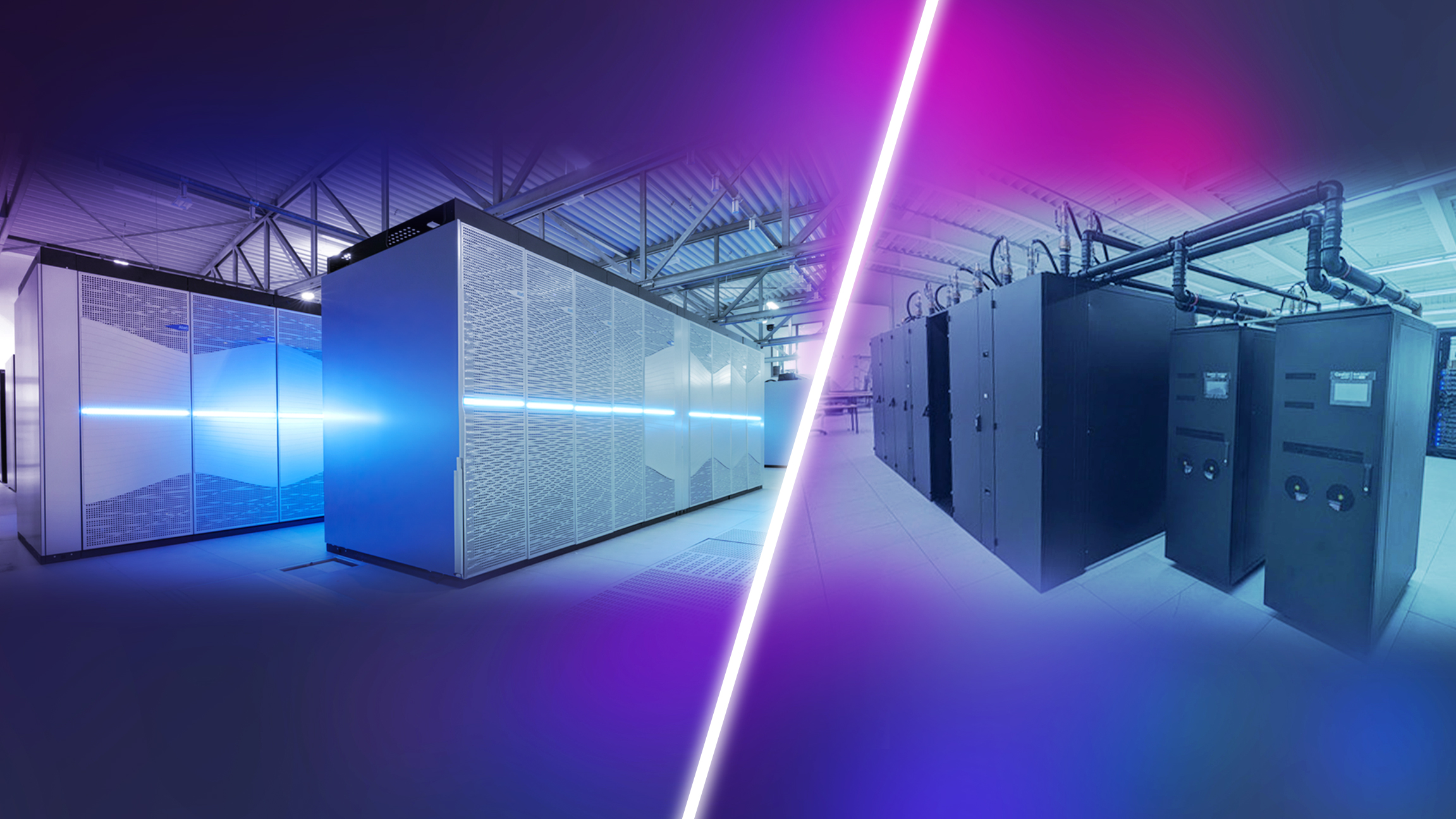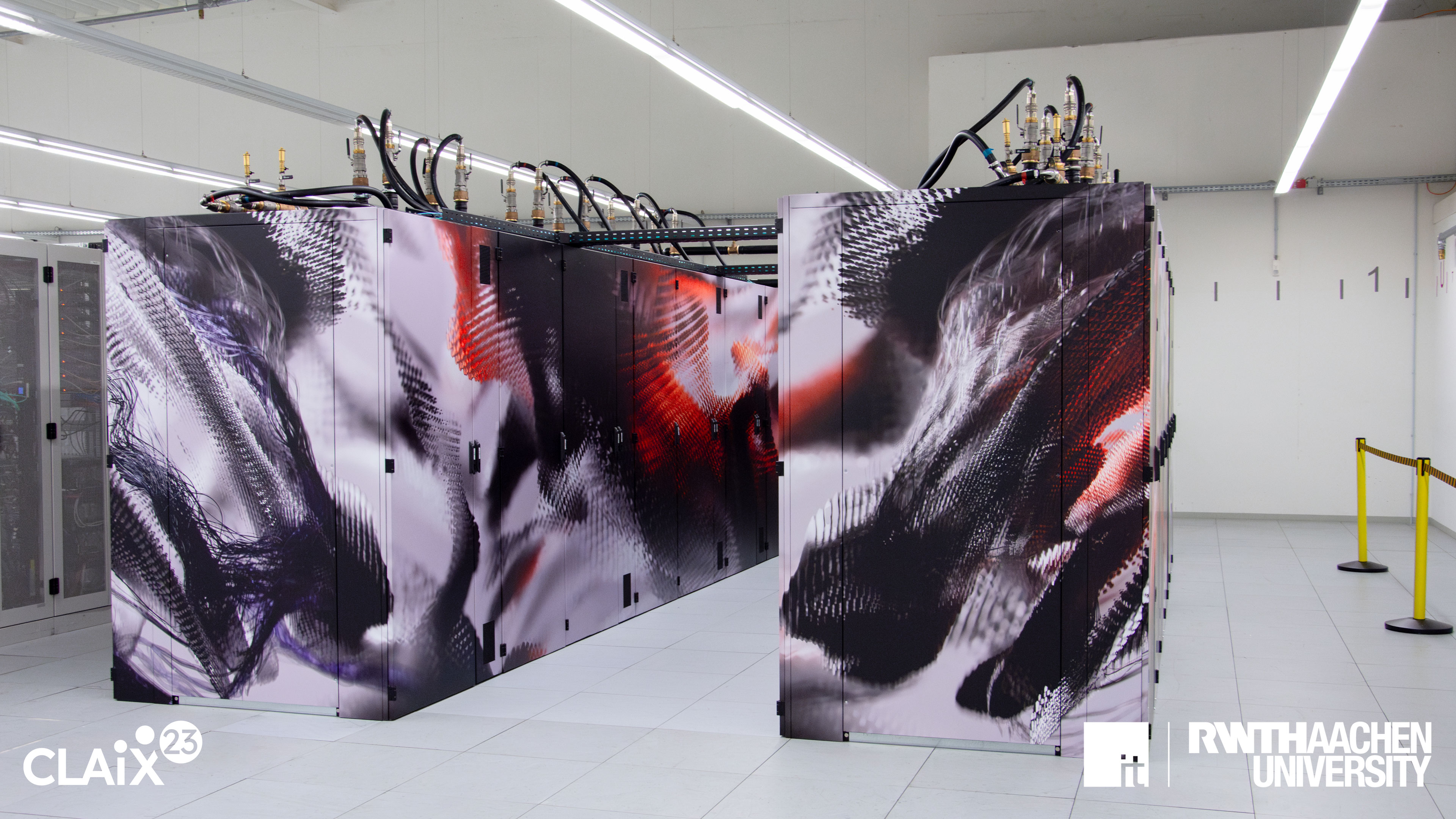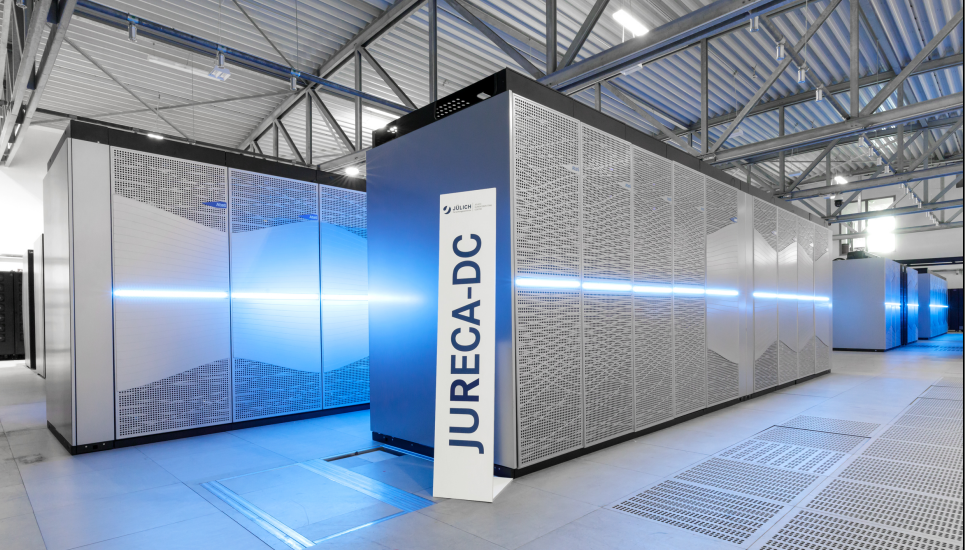
© Forschungszentrum Jülich/Ralf Uwe Limbach und RWTH Aachen/NHR4CES
SMEs and research institutions have increasing need for expertise and computing capacity for their AI research. Prominent academic institutions of the state of North Rhine-Westphalia, led by the University of Bonn, have jointly formed the AI service center WestAI to provide AI services and proprietary AI research in support of business and research. The state-of-the-art computing infrastructures of RWTH Aachen and Forschungszentrum Jülich are utilized for the services. As of now, interested outside parties can request computing time for AI projects via the WestAI website. At present the services are provided free of charge thanks to funding from the Federal Ministry of Education and Research (BMBF).
The use of artificial intelligence (AI) holds the promise of yielding significant competitive advantages in many industries, including efficiency gains, lower costs and the development of new products and services. According to a 2023 study by the digital association Bitkom however, only 15% of Germany’s small to mid-sized enterprises (SMEs) use AI, with another 31% planning to employ it. North Rhine-Westphalia’s leading research institutions are offering support for business and research purposes through WestAI, the AI service center, enabling low-threshold access to powerful AI computing resources.
Subsidized computing power for AI projects
“We are the ones to call when you have an idea for an AI project but no AI hardware or experience,” says Professor Matthias Müller, who is Area Manager Hardware at WestAI and Director of the IT Center at RWTH Aachen. Interested parties can access the high-performance computing infrastructures of RWTH Aachen and Forschungszentrum Jülich to train large AI models — with or without additional support from WestAI. “We are thus opening up AI infrastructure for business and research uses that would otherwise only be accessible to major corporations. The easy-to-use JupyterHub interface makes it relatively easy for even first-time AI users to work with the system,” Müller explains. Up to 10,000 GPU hours can be utilized per project.

© RWTH Aachen / IT Center
A total of 15 servers of the CLAIX-23 supercomputer are available for WestAI at RWTH Aachen University.

© Forschungszentrum Jülich / Ralf-Uwe Limbach
A total of 16 servers of the JURECA supercomputer at Forschungszentrum Jülich can be used for projects within the framework of WestAI.
As of now, interested parties can request computing time using the AI hardware via the website of the AI service center — it takes just a few steps. Startups and SMEs can receive additional support from WestAI, including personal guidance through the request filing process. “To assess AI potential and support the development of ideas and their realization, we recommend that companies take advantage of the offered initial consultation with our AI experts if they feel they might benefit,” says Dr. Stefan Kesselheim, Head of AI Consulting at WestAI and Forschungszentrum Jülich. Promising ideas can be further developed jointly within a research partnership to realize tailored AI solutions.
As of now, interested parties can request computing time using the AI hardware via the website of the AI service center — it takes just a few steps. Startups and SMEs can receive additional support from WestAI, including personal guidance through the request filing process. “To assess AI potential and support the development of ideas and their realization, we recommend that companies take advantage of the offered initial consultation with our AI experts if they feel they might benefit,” says Dr. Stefan Kesselheim, Head of AI Consulting at WestAI and Forschungszentrum Jülich. Promising ideas can be further developed jointly within a research partnership to realize tailored AI solutions.

© Forschungszentrum Jülich / Ralf-Uwe Limbach
A total of 16 servers of the JURECA supercomputer at Forschungszentrum Jülich can be used for projects within the framework of WestAI.
More efficient and sustainable large AI models
Many University of Bonn academics are conducting research on AI as part of the WestAI project, studying automated analysis of large data volumes, computer vision and cognitive robotics. In addition to getting access to AI hardware, consulting and help developing individual AI applications, businesses and researchers can benefit from the AI expertise and know-how of the WestAI project partners in other ways, such as researcher-led training courses offered through the University of Bonn.
“For our own research we utilize multimodal AI systems, which in addition to text can process audio, image, 3D, sensor and other data, which significantly increases the potential of AI applications,” explains Professor Stefan Wrobel of the University of Bonn Institute of Computer Science, who is Director of the Fraunhofer Institute for Intelligent Analysis and Information Systems IAIS. Transfer learning is another focus, in which pre-trained AI models are adapted for specific application scenarios using a small volume of training data. As one of the four AI service centers funded by the Federal Ministry of Education and Research since late 2022, WestAI offers its services free of charge at this time. The aim is to advance AI research in Germany and promote transfer into practical applications.